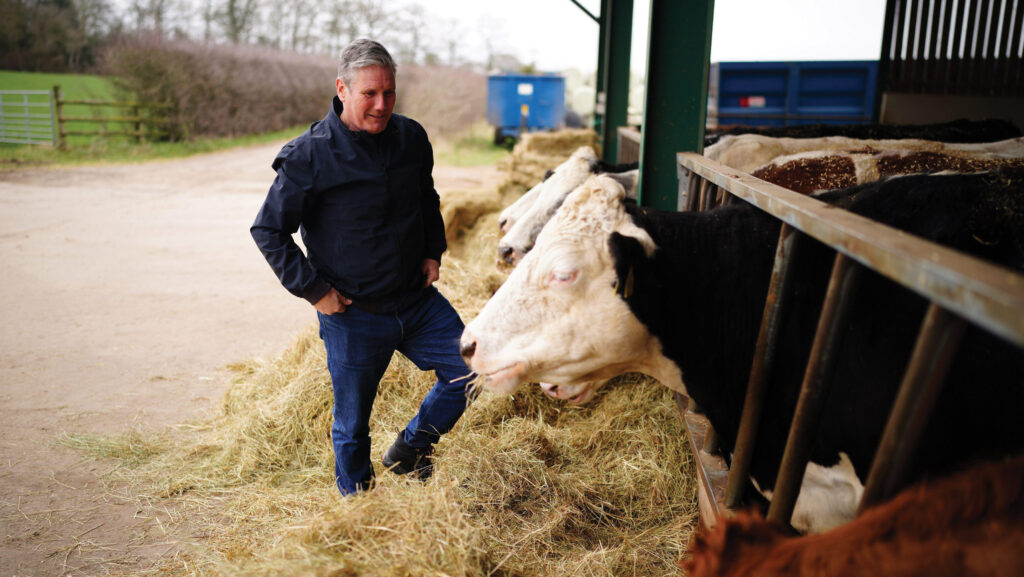New government set to shake up political landscape
 © PA Images/Alamy Stock
© PA Images/Alamy Stock Farming organisations are preparing for the biggest government shake-up in almost 15 years following the general election.
Labour has set out five missions to “rebuild Britain” that include kickstarting economic growth, boosting clean energy supply and clamping down on crime.
See also: Badger Trust slams Labour’s backpedalling on badger cull
As a result of the party’s focus on “mission-driven government”, NFU director of strategy Nick von Westenholz said he expected significant changes to decision-making structures, with the introduction of several “mission boards” and possible departmental reforms.
Mr von Westenholz said: “From our conversations with Labour, it is clear that where they see policies as contributing to these missions, there will be a much higher likelihood that they will be prioritised.
“So farming’s ability to demonstrate how it can contribute to jobs and growth in rural areas, and also in other parts of the UK by boosting the wider domestic food sector, will be critical.”
Opposition
At the Countryside Alliance, chief executive Tim Bonner is contemplating how to handle the new make-up of the House of Commons, noting that if there is a huge Labour majority, the combined opposition will be effectively powerless.
“The battles that matter won’t be between Labour and the Conservatives or Liberal Democrats, but between different sections of the Labour Party, and we all have to get our heads around that,” he said.
“In 2019, Labour was largely wiped out of rural constituencies, but that is about to change.
“It would be very helpful to have a group of rural MPs for whom farming and rural issues are important and who are able to lobby ministers and Number 10.”
Policy ‘light’
On specific farming policies, the Labour manifesto was – by design – very light.
But Vicki Hird, strategic lead on agriculture at the Wildlife Trusts, told Farmers Weekly the Labour team had expressed “strong interest” in issues around supply chain fairness.
“There is always a risk that government will fear noise about food prices, which is not a necessary outcome if fair dealing regulations are done well, but we have had good chats,” she said.
“I would add that on building local food supply chains and on local and environmental procurement for schools, they have been very positive, too.”
Tenancy reform
On tenancy reform, which was not mentioned in the manifesto, Tenant Farmers Association chief executive George Dunn was also hopeful.
“We’ve been given assurances that Labour is very much in favour of what was in the Rock Review and will want to ensure the agenda is taken forward,” he said.
He also noted that the Labour team had listened to arguments against scrapping agricultural property relief and was optimistic that a future government would take a “more intelligent” approach.
Core standards
On trade, David Henig, UK director of the European Centre for International Political Economy, said he “would not be surprised” to see Labour introduce the “core standards” farm groups have been asking for.
The party could also seek a closer relationship with the EU, which may have an impact on regulation of plant protection products.
The King’s Speech, where the new government will set out its initial priorities, will take place on 17 July.
